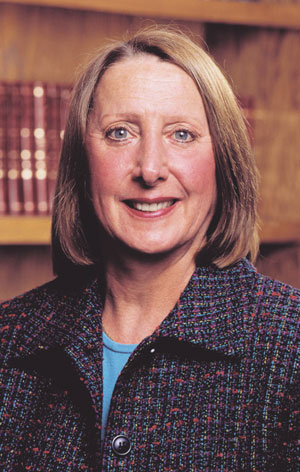Lawyers and paralegals in Ontario will now swear virtually identical oaths of office after a majority of law society benchers turned down oaths with separate preambles that one bencher called “demeaning.”

Paralegal Bencher Paul Dray, chairman of the paralegal standing committee, told Convocation that his committee was against different language used in the preambles.
“What they were proposing was that for barristers and solicitors it’s an ‘honour and a privilege,’ but for paralegals it isn’t an honour and a privilege,” he said.
“Our committee felt very strongly that it was an honour and a privilege to be a member of this society, to have the responsibility to the public, and the same responsibility. We understand the difference between lawyers and paralegals - that’s very clear. But not our duties and responsibilities to the public.”
The professional development and competence committee addressed the oath issue at its Feb. 12 meeting, according to a report issued at May Convocation. Some members felt there should be separate oaths for lawyers and paralegals, and it was suggested that, “it might be appropriate to maintain the oath’s historic language.”
The group created a pair of oaths - one for barristers and solicitors, one for paralegals - that the report said “reflects the professional and legal distinction between lawyers and paralegals, while the remaining paragraphs reflect the common duties and responsibilities owed to clients, the judiciary, the public, and the profession.”
The oaths proposed by the committee were identical, with the exception of their preambles. The barristers and solicitors oath started off with, “I accept the honour and privilege, duty and responsibility of practicing law as a barrister and solicitor in Ontario.”
The paralegals oath, however, began with, “I undertake to perform all of the duties and fulfil all of the obligations required of a paralegal in the province of Ontario.”
The report stated, “The purpose of an oath is to remind those taking it of these standards and duties and the commitment they are making. From a regulatory perspective, the oaths should mirror each other so that it is clear that lawyer and paralegal duties are the same, within their respective spheres.”
Bencher Alan Silverstein, chairman of the oath working group, told Convocation that the different preambles in the proposed oaths aimed to “recognize that there are differences - historically, there would be differences - between lawyers and paralegals.”
Bencher Judith Potter urged Convocation to adopt a different oath for lawyers, saying she has spoken to lawyers who are “appalled” by the prospect of members of their profession swearing the same oath as paralegals.
“To be a lawyer is to be a member of a profession requiring graduation from a professional school at a university,” she said. “In my view, paralegals are a vocation, not a profession, and therefore should not be swearing the identical oath sworn by lawyers.”
Bencher Susan McGrath, vice-chairwoman of the paralegal standing committee, said, “When I read the two versions of the oath . . . I personally felt that the oath for paralegals seemed to be somewhat demeaning, given the fact that they have the same professional duties and obligations, and I’m sure that paralegals feel the honour and the privilege of being members of this society.”
The paralegal standing committee issued a report stating, “the committee regarded the different first sentences as an unnecessary distinction given the important role of paralegals in providing legal services to Ontarians and thus enhancing access to justice.”
The committee proposed a preamble more in line with the barristers and solicitors oath, reading, “I accept the honour and privilege, duty and responsibility of providing legal services as a paralegal in the province of Ontario.”
After an hour of debate among benchers, that proposal passed by a vote of 37-5. A sentence reading, “I shall seek to improve the administration of justice,” was added to both oaths following a motion from Bencher Tom Heintzman.
Controversy over the oath dates back to the Law Society of Upper Canada’s May 2008 annual general meeting, when members passed a non-binding motion for benchers’ consideration.
It called for a change to the oath, with amendments to the law society’s bylaws to replace the term “licensee” with “lawyers” or “barristers and solicitors.” It also asked that lawyers in good standing be called “members” by the LSUC.
Wording in the oath was changed in April 2007, when the law society passed an omnibus motion amending its bylaws in response to the beginning of paralegal regulation, which commenced May 1, 2007. The LSUC said the term “licensee” was inserted throughout the Law Society Act at that time - at the provincial government’s behest through the Access to Justice Act - as a generic term referring to both lawyers and paralegals.
The law society also said it continued to use the term “members” when referring to lawyers and paralegals for corporate, rather than regulatory, purposes.
The issue came to Convocation in November 2008, when the ad hoc committee first proposed a new oath of office. But most benchers were unsatisfied with what the committee came up with, and sent it back to the drawing board. The committee was initially expected to submit another proposal to Convocation the following month.

 Paralegal Bencher Paul Dray, chairman of the paralegal standing committee, told Convocation that his committee was against different language used in the preambles.
Paralegal Bencher Paul Dray, chairman of the paralegal standing committee, told Convocation that his committee was against different language used in the preambles.